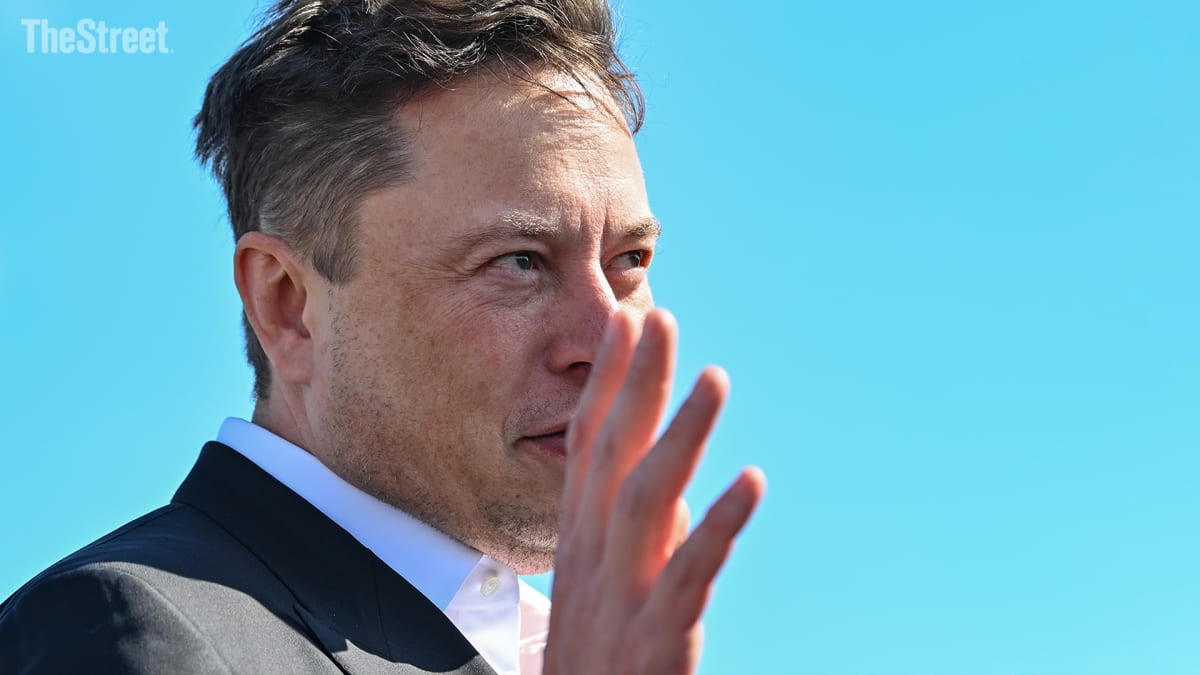
One of Elon Musk's weapons is provocation.
This sometimes takes the form of sarcasm or even humiliation depending on the adversary the billionaire entrepreneur faces. He also uses provocation to defend himself, but most often he uses it to launch a counterattack.
Musk has just used this weapon against former Russian President Dmitry Medvedev, who had mocked former British Prime Minister Liz Truss.
Truss resigned on Oct. 20 just 45 days after winning a contest to lead the U.K. Conservative Party. She'd proposed an economic policy that confused markets and members of her own party.
Her tenure as prime minister will go down as the shortest on record, surpassing the 119 days of George Canning, who died in office of a heart attack in 1827.
"I recognize though, given the situation, I cannot deliver the mandate on which I was elected by the Conservative Party," Truss said. "I have therefore spoken to His Majesty the King to notify him that I am resigning as leader of the Conservative Party."
'Bye, Bye ... Congrats to Lettuce'
While Truss's whirlwind stint in charge of the U.K. government was widely commented about, in markets and on TV stations and social networks, Medvedev, who is close to Russian President Vladimir Putin, made his own commentary.
"Bye, bye @trussliz, congrats to lettuce," Medvedev, who is now deputy chair of the Security Council of the Russian Federation, posted on Twitter on Oct. 20.
His trolling tweet alludes to a decision made by U.K. tabloid newspaper The Daily Star, which on Oct. 14 started a YouTube livestream displaying a head of lettuce on one side and a portrait of Truss on the other.
The paper then asked the question: "Will Liz Truss still be Prime Minister within the 10 day shelf-life of a lettuce?”
Musk took note of Medvedev's protrusion and admits he has a sense of humor.
"Pretty good troll tbh [to be honest]," the billionaire commented.
'How's It Going in Bakhmut?'
But the techno king then counterattacked, hitting where it hurts the most.
"Btw, how’s it going in Bakhmut?" Musk asked Medvedev.
Medvedev waited several hours to respond. And his response suggests that Musk hit a nerve.
"See you in Moscow on the Victory Day!" the former Russian President replied.
Musk's sarcastic question highlights Ukraine's recent defeats of Russian forces in the war between the two countries. Russia invaded Ukraine on Feb. 24.
After recording victories during the first months of the conflict, Russia finds itself on the defensive against Ukraine's forces.
Bakhmut is a town in the Donbass region in eastern Ukraine. The city, which is a hub for roads and railway lines, in recent days has become a focus of attention for politicians and analysts.
Russian forces have repeatedly tried to seize Bakhmut, which sits on a main road leading to the cities of Sloviansk and Kramatorsk.
Putin seems determined to take control of Bakhmut, to claim a victory but also to boost the morale of his troops, some of whom have started to question the war, according to experts.
Taking control of Bakhmut also could enable Putin to more broadly change the narrative of the past six weeks, which is that Ukraine's counteroffensive had put Russia on the back foot, experts say.
In addition, "in Bakhmut, Russia is desperately trying to change the narrative of this war," reports BBC News journalist Jonathan Beale. "It's one of the few places where it is not in retreat. Its advances here have been slow and costly, but Russian forces have been gaining ground."
For now Ukrainian troops are holding Bakhmut in the face of repeated Russian attacks, Ukrainian President Volodymyr Zelensky has said.
In view of the symbolism that Russia attaches to Bakhmut, the communications war has also intensified. Each camp claims to have the upper hand over the other.







